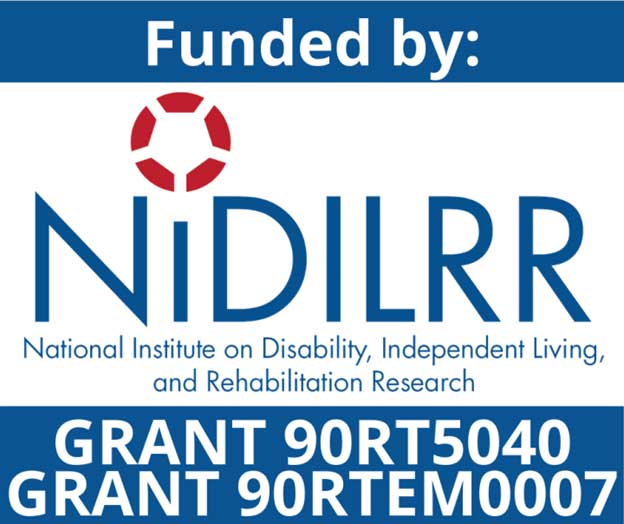Youth who are blind or have low vision (B/LV) face a tough job market and must overcome numerous barriers as they prepare to transition smoothly from high school to either college or career. NRTC research on transition-age youth with B/LV and the factors that contribute to their success in employment points to the following recommendations:
Make work experience an essential part of the high school years. Jobs can take place after school, on weekends, during the summer, or during holiday breaks. They can be paid jobs, internships, or job training programs. However, all jobs are not created equal. Before looking for a job, think about the type of work, how the job will be obtained, and how long the job will last. Youth who are deaf-blind can also benefit from gaining early work experience.
Learn more by reading our Article Summaries:
- Keys to a Successful Transition: Ensuring Youth with Visual Impairments are Ready for Career and College
- In-School Predictors of Post-School Employment for Deaf-Blind Youth
Don’t ignore personal development in favor of work experience. Neglecting academics or skill development can negatively impact you in the long run. Ignoring work experience in favor of academics, which youth are sometimes encouraged to do, is not desirable either. Instead, try to find a good balance. Learn more.
Work on developing a strong sense of self-advocacy and self-determination by looking for opportunities for decision-making. One good way to focus on these skills is to take a more active role in working with your teachers and vocational rehabilitation counselors. Learn more.
Start developing academic and social skills early. Transition services are required to start by age 16, but it may be appropriate to begin services at a younger age. The earlier gaps in academic and social skills are identified, the more quickly they can be improved through intervention and training. Don’t hesitate to advocate for an earlier start to transition services! Learn more.
Connect with a career mentor. Getting to know working individuals who are also B/LV or deaf-blind can help you set high expectations for future employment. Consumer organizations for individuals who are B/LV or deaf-blind are great places to meet mentors and role models. If a mentor in your chosen career field is not available locally, check CareerConnect to find a long-distance mentor.
Learn more by reading our Article Summaries:
- The Effect of Career Mentoring on Employment Outcomes for College Students who are Legally Blind
- In-School Predictors of Post-School Employment for Deaf-Blind Youth.
Additional Transition Resources from the NRTC
Transition to College Activity Calendar
This Transition Activity Calendar designed by the NRTC lists tasks which students who are blind or have low vision need to complete as early as middle school in order to be ready to attend college. From taking the right high school courses, to learning to use the most appropriate assistive technology, to career exploration and finding the colleges best suited to the selected course of study, to what the student is looking for in campus life, the demands of good preparation start early and continue through 12th grade and the summer before the first Fall semester of college.
List of Transition Programs by State
This list includes college preparation, school to work, and/or independent living programs – run by Vocational Rehabilitation, private agencies, special education programs, or colleges and universities.
